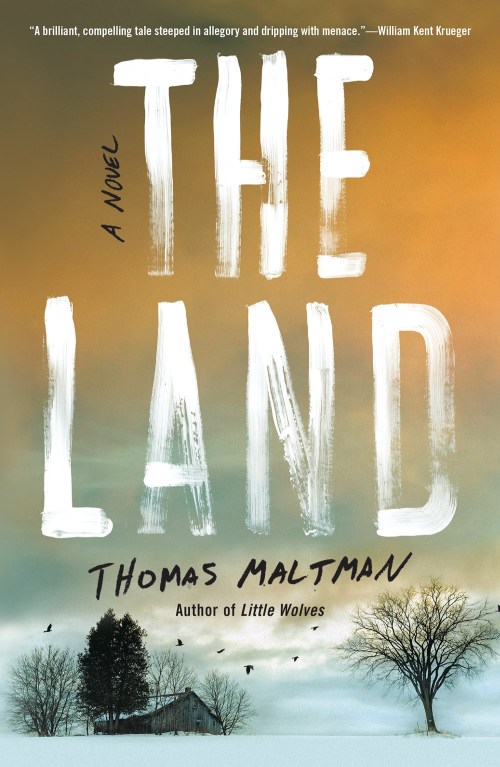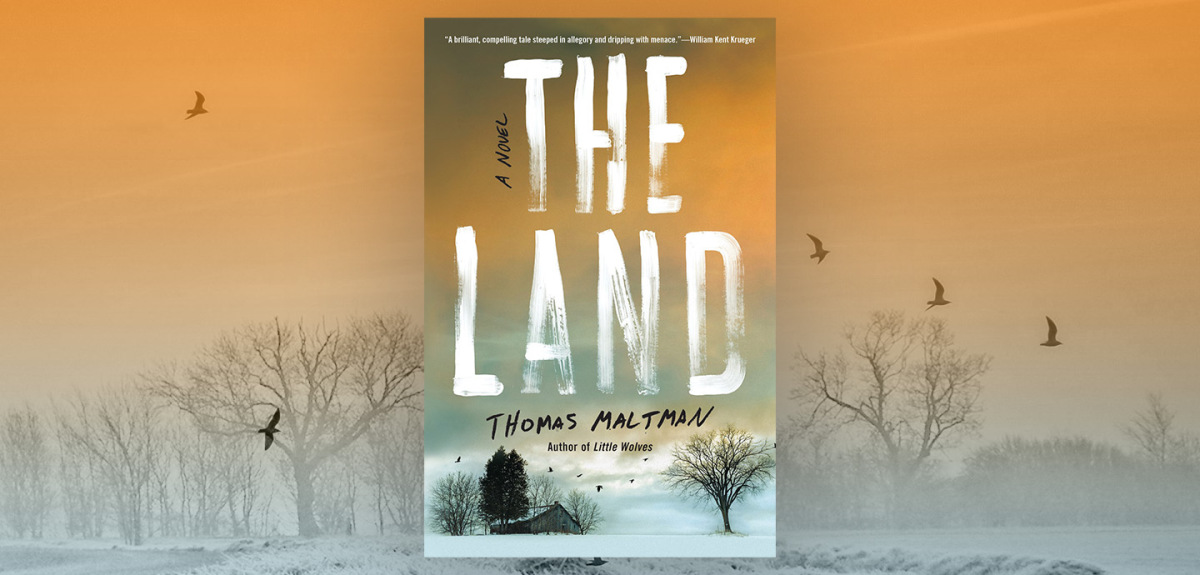[ad_1]
I am twenty-five years old and have no memory of 1999. What I know of Y2K comes from my father’s nostalgic laughter and from the Mike Judge classic Office Space. So to understand the vague paranoia underlying Thomas Maltman’s The Land, I admit to not having the proper context clues. However, I did feel a potent paranoia of my own, as a reader of color. How easy is it to believe in white supremacy?
The premise of Maltman’s novel is almost too strange to believe. Lucien Swenson, a college student, agrees to take care of a family friend’s home in the Minnesota backwoods and during his time there, he infiltrates an apocalyptic church. This church, Rose of Sharon, attracts ex-convicts, skinheads, and other outcasts searching for shared purpose. Lucien is a misfit himself. A programmer, introvert, cast off from family and most of his friends, only feeling at home in the arms of Maura, his former lover. Maura, wife of a Rose of Sharon pastor, disappeared months ago with five thousand dollars. Her fate unknown, Lucien risks his life and sanity to find her. Along the way, we stumble through thickets of snow, an unkindness of ravens, and the looming threat of 2000. And though Lucien narrates the tale from the future, clearly alive, we wonder if the world is set to end after all.
The prose of this novel is sparse and somewhat conversational, reflecting Lucien’s age and the bleakness of a Minnesota winter. We’re thrown into lengthy descriptions of dated technology and Christian meditation, but as someone unacquainted with either, I found the verbiage easy to navigate. The Land reads quickly, for a time. We’re taken in by Lucien’s initial disgust with Rose of Sharon, intrigued by Maura’s absence, and unsettled by the twists and turns the novel takes.
Perhaps the most disconcerting aspect of The Land is Lucien’s close ties with the Rose of Sharon members, and how quickly genuine relationships develop. He attends their service voluntarily, freely comes and goes from their campsite to his house, and is acutely aware of every decision he makes. He is somehow drawn to Elijah, Maura’s husband, a violent ex-convict. They play chess, dialogue about the nature of God, partake in faith healings. Lucien studies the Bible and reads white supremacist literature, and at times loses sight of why he joined Rose of Sharon in the first place. At its most harrowing point, Lucien agrees to hang signs in his university campus and is confronted by his friend Noah, who is biracial and the only person of color in the novel. He responds: “So what if I am [one of them now]…I mean, you’re half white too, why not be proud of who you are?”
Noah is betrayed. We as readers of color feel betrayed.
I am reminded of Mohsin Hamid’s 2007 novel The Reluctant Fundamentalist, and while The Land ends differently, Maltman wastes no time in showing Lucien’s malleable nature. At no point is Lucien indignant at the church’s teachings, as he is so numbed by life experience and feels general bewilderment instead. In fact, Lucien brings up growing up with few people of color in his life and having openly racist grandparents. To those of color, these feel like familiar justifications for casual racism. Or in this case, not so casual. As the novel ends, we wonder if enough lessons have been learned, if Lucien has truly internalized the harm he perpetuated. Perhaps, perhaps not.
The Land spreads itself thin with atmosphere, with paranoia, with characters that float in and out, with mysterious ravens that spill their carnage in the snow. But the plot propels itself, compelling readers to the end. And the discomfort lives on. 1999 was twenty-one years ago, but the threat of white supremacy unfortunately remains.

FICTION
The Land
By Thomas Maltman
Soho Press
Published October 13, 2020

[ad_2]
Source link
